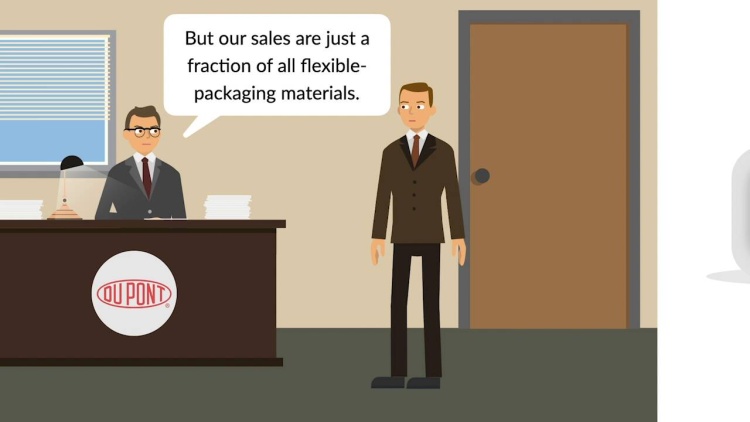United States v. E. I. du Pont de Nemours & Co.
United States Supreme Court
351 U.S. 377, 76 S. Ct. 994, 100 L.Ed. 1264 (1956)

- Written by Sean Carroll, JD
Facts
E. I. du Pont de Nemours and Company (du Pont) (defendant) was a manufacturer of cellophane, a clear-film material used as a wrapping for foodstuffs and other items. du Pont owned a patent for a moisture-proof version of cellophane that was especially desirable as a wrapping material. du Pont’s cellophane was very popular, and the United States (plaintiff) brought an action against du Pont, claiming that du Pont had monopolized the market for cellophane. du Pont argued that the government’s alleged product market was too narrow and that cellophane was a product within the larger market for flexible packaging materials (e.g., aluminum foil, waxed paper, and Saran wrap). During the relevant period, du Pont maintained a share of 75 percent of cellophane production in the United States but less than 20 percent of flexible-packaging production. The district court accepted du Pont’s market definition after determining that consumers had treated other flexible packaging materials as functional substitutes for cellophane. Based on this definition, the district court determined that du Pont did not possess a monopoly in violation of § 2 of the Sherman Act. The government appealed.
Rule of Law
Issue
Holding and Reasoning (Reed, J.)
Dissent (Warren, C.J.)
What to do next…
Here's why 904,000 law students have relied on our case briefs:
- Written by law professors and practitioners, not other law students. 47,100 briefs, keyed to 995 casebooks. Top-notch customer support.
- The right amount of information, includes the facts, issues, rule of law, holding and reasoning, and any concurrences and dissents.
- Access in your classes, works on your mobile and tablet. Massive library of related video lessons and high quality multiple-choice questions.
- Easy to use, uniform format for every case brief. Written in plain English, not in legalese. Our briefs summarize and simplify; they don’t just repeat the court’s language.





